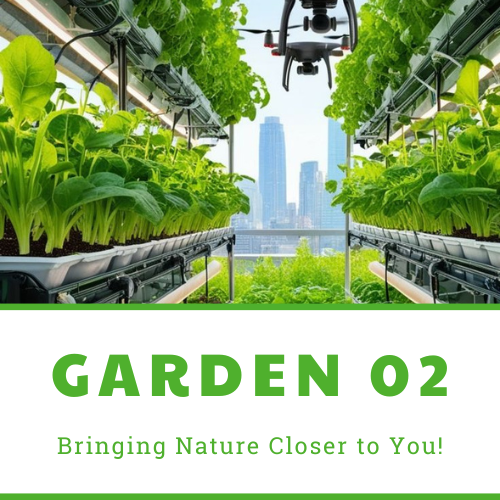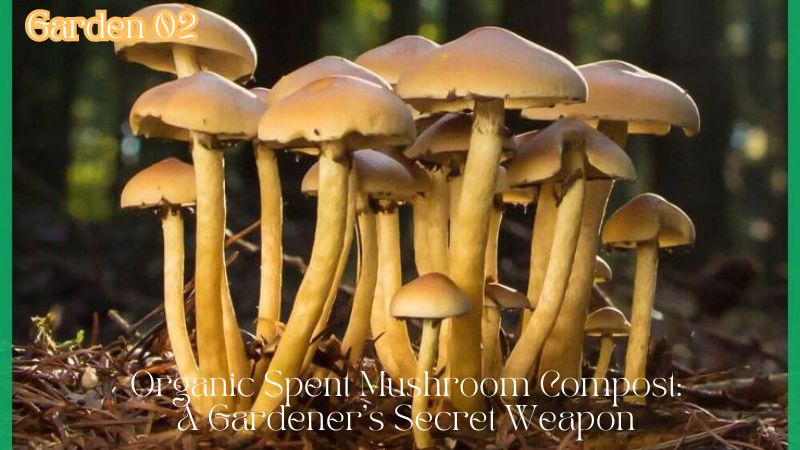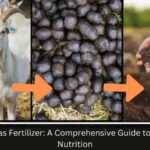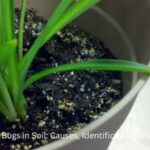Organic spent mushroom compost is becoming increasingly popular among gardeners and landscapers as an eco-friendly, nutrient-rich soil amendment. Derived from the by-products of mushroom cultivation, this compost offers an abundance of organic matter, essential nutrients, and the ability to improve soil structure. For anyone interested in sustainable gardening, understanding the benefits of using spent mushroom compost can provide valuable insights into improving plant health and boosting yields.
In this article, Garden 02 will explore what organic spent mushroom compost is, its benefits, how it’s made, and best practices for using it in your garden.
Table of Contents
Toggle1. What is Organic Spent Mushroom Compost?
Organic spent mushroom compost is a by-product of mushroom farming. Mushrooms, such as button mushrooms, oyster mushrooms, and shiitake mushrooms, are grown in specially prepared substrates. These substrates are composed of organic materials such as straw, hay, chicken manure, gypsum, and other natural products. After the mushrooms have been harvested, the remaining substrate, now called “spent mushroom compost,” can no longer be used for mushroom production but still contains a wealth of nutrients for other plants.
Since the substrate was used to grow organic mushrooms, the compost produced from it is free from synthetic chemicals or pesticides, making it an environmentally friendly option for organic gardening.
2. How is Organic Spent Mushroom Compost Made?
Spent mushroom compost goes through several stages before it becomes suitable for garden use. The process involves creating the initial substrate, mushroom cultivation, and then composting the leftover materials.
2.1. Creating the Substrate
The mushroom-growing substrate is carefully formulated using a mix of organic ingredients. These typically include:
- Straw or hay: Provides the carbon-rich base for the compost.
- Chicken manure or horse manure: Supplies nitrogen, essential for both mushroom growth and plant development.
- Gypsum: Added to balance the pH of the compost and to prevent the substrate from becoming too acidic.
- Other organic additives: Sometimes additional organic materials such as coffee grounds or cottonseed meal are added to enhance nutrient content.
These ingredients are mixed, moistened, and pasteurized to kill off any harmful bacteria, fungi, or weed seeds before they’re used to grow mushrooms.
2.2. Mushroom Cultivation
Once the substrate is ready, it’s inoculated with mushroom spores and placed in controlled environments where temperature, humidity, and light are managed to optimize mushroom growth. After the mushrooms have been harvested, the remaining substrate has lost its effectiveness for further mushroom production. At this stage, it becomes “spent” mushroom compost.
2.3. Composting the Spent Substrate
The spent substrate still contains organic matter and nutrients that can be beneficial for other plants. To prepare it for garden use, the compost is further processed through composting, which involves:
- Aeration: The spent substrate is turned regularly to allow air circulation and encourage aerobic decomposition.
- Moisture control: Water is added periodically to maintain the right moisture level for microbial activity.
- Microbial activity: During the composting process, beneficial bacteria and fungi break down the organic materials, converting them into a stable, nutrient-rich compost.
After several weeks or months of composting, the material is ready to be used as a soil amendment in gardens, landscapes, and agricultural settings.
3. Benefits of Organic Spent Mushroom Compost
Organic spent mushroom compost offers a wide range of benefits for soil and plant health. Here are some of the key advantages of using this compost in your garden.
3.1. Rich in Organic Matter
Spent mushroom compost is a great source of organic matter, which improves soil structure by increasing its ability to retain moisture and nutrients. Organic matter also promotes the development of a healthy soil ecosystem, encouraging earthworms and beneficial microorganisms to thrive. By adding spent mushroom compost to your garden, you can boost the soil’s overall fertility and productivity.
3.2. Nutrient-Rich
Although the substrate has been “spent” for mushroom production, it still contains a wealth of nutrients beneficial to other plants. Organic spent mushroom compost is high in essential nutrients like nitrogen (N), phosphorus (P), and potassium (K), which are crucial for plant growth. It also contains trace elements like calcium, magnesium, and sulfur that contribute to healthier plants.
- Nitrogen (N): Promotes leafy growth and overall plant development.
- Phosphorus (P): Supports root development and flowering.
- Potassium (K): Strengthens plants and helps them resist diseases.
3.3. Improves Soil Structure
One of the primary benefits of organic spent mushroom compost is its ability to improve soil structure. It helps to break up heavy clay soils, making them more friable and easier to work. In sandy soils, the compost improves water retention, reducing the need for frequent irrigation. The improved structure allows roots to grow deeper and access more nutrients and water, leading to healthier, more resilient plants.
3.4. Balanced pH
Spent mushroom compost is generally neutral to slightly alkaline, making it ideal for balancing acidic soils. Many gardeners with highly acidic soils use spent mushroom compost to raise the pH, creating a more hospitable environment for plants that prefer neutral or slightly alkaline conditions, such as vegetables and certain ornamental plants.
3.5. Environmentally Friendly
Using organic spent mushroom compost is an excellent way to recycle agricultural by-products and reduce waste. Instead of discarding the used mushroom substrate, farmers can turn it into valuable compost, minimizing their environmental footprint. Gardeners, in turn, benefit by using a sustainable product that helps to enrich their soil without relying on synthetic fertilizers or chemical additives.
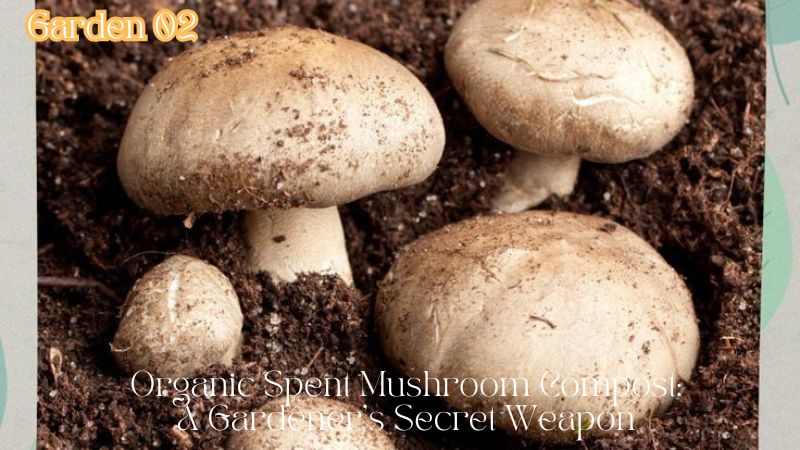
4. How to Use Organic Spent Mushroom Compost in Your Garden
Spent mushroom compost can be used in a variety of ways to enhance your garden’s health and productivity. Here are some of the best practices for using this compost effectively.
4.1. Soil Amendment
One of the most common uses of organic spent mushroom compost is as a soil amendment. Before planting, spread a 2-3 inch layer of the compost over your garden beds and work it into the top 6-12 inches of soil. This will help to improve soil structure, increase moisture retention, and provide essential nutrients to support plant growth.
4.2. Mulching
Spent mushroom compost can also be used as a mulch around plants to suppress weeds, retain moisture, and gradually release nutrients into the soil. Apply a 2-3 inch layer of compost around the base of plants, being careful not to pile it too close to the stems. The compost will help to moderate soil temperatures and keep weeds at bay while enriching the soil as it breaks down.
4.3. Compost Tea
You can make a nutrient-rich compost tea from organic spent mushroom compost to give your plants a liquid boost. To make compost tea, simply fill a mesh bag with spent mushroom compost and steep it in a bucket of water for 24-48 hours. Strain the liquid and use it to water your plants. Compost tea delivers nutrients directly to plant roots and can be used as a foliar spray to boost plant health and fend off diseases.
4.4. Top Dressing for Lawns
Organic spent mushroom compost can be used as a top dressing for lawns, helping to improve soil quality and boost turf growth. Spread a thin layer of compost over your lawn (about ¼ inch thick) and rake it evenly across the surface. The compost will help to retain moisture, reduce thatch buildup, and promote deeper root growth, resulting in a healthier, greener lawn.
5. Considerations When Using Organic Spent Mushroom Compost
While spent mushroom compost offers numerous benefits, there are a few considerations to keep in mind when using it in your garden.
5.1. Potential Alkalinity
Spent mushroom compost tends to have a neutral to slightly alkaline pH. While this can be beneficial for balancing acidic soils, it may not be suitable for plants that prefer more acidic conditions, such as azaleas, rhododendrons, or blueberries. Before applying spent mushroom compost, test your soil’s pH to ensure it’s appropriate for the plants you’re growing.
5.2. Salt Content
Spent mushroom compost can sometimes contain higher levels of soluble salts, depending on the ingredients used in the original substrate. While this is usually not a problem for most garden plants, it can be an issue for salt-sensitive plants or in areas with poor drainage. If you’re concerned about salt levels, consider mixing the compost with other organic materials to dilute the salt content, or use it sparingly around sensitive plants.
5.3. Decomposition Rate
Organic spent mushroom compost is relatively stable, meaning it breaks down slowly over time. While this is advantageous for long-term soil improvement, it may not provide an immediate nutrient boost like some other fertilizers. For best results, use it as part of a comprehensive soil management strategy, combining it with other organic fertilizers or composts as needed.
6. Conclusion
Organic spent mushroom compost is a versatile, eco-friendly, and nutrient-rich soil amendment that can benefit any garden. Its ability to improve soil structure, provide essential nutrients, and enhance water retention makes it a valuable tool for sustainable gardening. By incorporating spent mushroom compost into your gardening routine, you can create healthier soils, grow more robust plants, and contribute to a more sustainable environment.
Whether you’re a seasoned gardener or just getting started, using organic spent mushroom compost is a simple and effective way to improve the health of your garden while supporting environmentally friendly practices.
